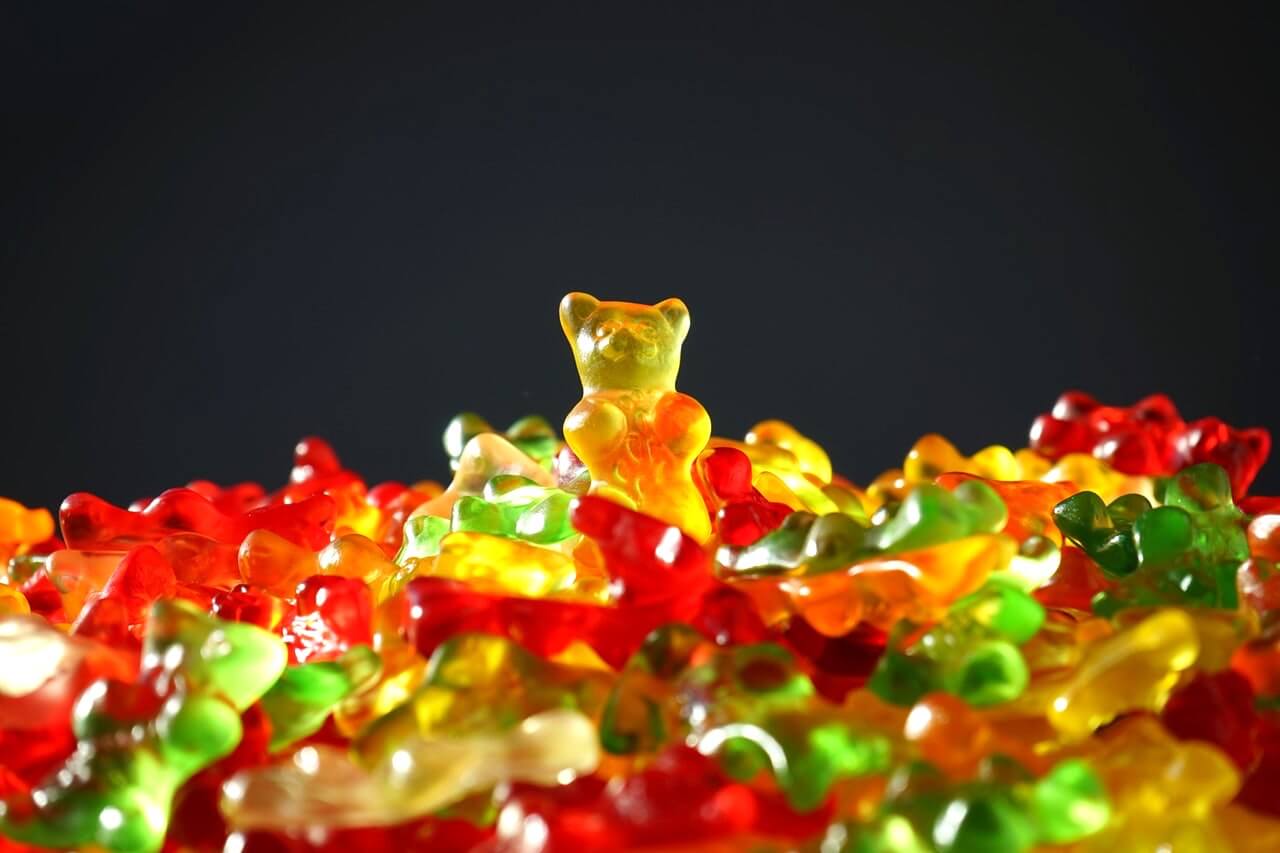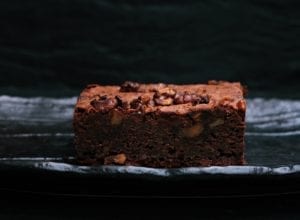
Edibles are exactly what you think they are—ingestible forms of cannabis that doesn’t require the use of fire to become activated. This is why so many THC and CBD users prefer edibles to smoke, vaping, or dabbing; there is no smoke permeating the lungs or throat.
Cannabis edibles come in three basic types: CBD edibles which are CBD dominant (contains little to no THC), balanced THC/CBD edibles (containing equal amounts of THC & CBD), and THC edibles which are THC dominant (contains little to no CBD) that produces a strong mental high.
Since balanced edibles also contain THC, consumers are subjected to experiencing the “mental” or psychedelic high weed is so well known for. Alternatively, CBD dominant edibles will not induce any feelings or sensations of intoxication.
What Are CBD Edibles?

 CBD edibles are quickly becoming one of the most popular products in the budding cannabis industry— raking in an estimated 4.1 billion dollars by 2022. CBD gummies were the third most commonly searched for food according to the Google 2018 annual search data report; losing out to unicorn cake and romaine lettuce.
CBD edibles are quickly becoming one of the most popular products in the budding cannabis industry— raking in an estimated 4.1 billion dollars by 2022. CBD gummies were the third most commonly searched for food according to the Google 2018 annual search data report; losing out to unicorn cake and romaine lettuce.
That said, THC edibles are no slouch in terms of popularity, having been used medicinally and spiritually since 1000 BCE in the form of bhang, a cannabis extract used by Hindus throughout India.
CBD edibles, on the other hand, has only recently become an acclaimed member of the cannabis family after strong evidence and personal testimonies kept pouring in about its therapeutic effectiveness.
Fast-forward to the present: the market for these treats includes various types of delicious treats that include but aren’t limited to gummy bears, desserts, protein powder, coffee, tea, energy drinks, cocktails, and full-on CBD infused meals.
CBD dominant edibles are made with CBD extracted from either hemp or marijuana. Technically, hemp and marijuana are a member of the cannabis family, but they do have some major differences. Possibly the most notable difference is how much THC they contain.
CBD is a natural chemical compound that has demonstrated its power as a sleep aid, and its ability to reduce anxiety, pain, and inflammation throughout the body—without inducing feelings of intoxication. Since CBD edibles are made with CBD extracted from hemp that contains less than 0.3% THC, it is legal in all 50 states.
It is important to keep in mind that these made from marijuana and contain more than 0.3% THC, so they have the potential to produce a high, and they are not legal in all 50 states. So make sure you are getting them made from hemp that contains less than 0.3% THC if you want to avoid getting high or worrying about testing positive for a drug test.
Quality CBD products should start with quality hemp plants. The hemp should be grown organically without the use of pesticides or herbicides to produce a product that is free from any harmful additives. When buying the edibles you should always check to see if the company you are buying from stands behind its products, and that it practices ethical growing, cultivation, extraction, and harvesting methods.
At Intrinsic Hemp, our CBD oil is extracted from quality hemp plants grown in the United States, without the use of pesticides or herbicides— and we back that up with third-party testing.
CBD edibles are made from one of three types of CBD: full-spectrum, broad-spectrum, or isolate. Full-spectrum CBD is made with the complete chemical profile of the plant, which includes all cannabinoids, terpenes, and flavonoids. Broad-spectrum CBD contains all the same compounds full-spectrum products do—except the THC is removed. Isolate products are stripped of all cannabinoids, terpenes, and other molecular compounds except for CBD.
CBD oil is typically extracted from the hemp plant using one of three popular extraction processes. The CO2 extraction method is said to produce the highest quality CBD oil, although some of the other cannabinoids and terpenes can be stripped out in the process.
After the CBD oil is extracted, it is blended with other ingredients to create CBD options like lollipops and gummy bears. Some people prefer to buy CBD oil and make their own items. CBD MCT coconut oil could be a great addition to a tropical health smoothie, or it may be nice blended with a carrier oil and mixed with a vinaigrette.
What Are THC Edibles?
As we mentioned earlier, THC in the form of edibles has been around since 1000 BCE. However, it wasn’t until the 1960’s counterculture that pot brownies and marijuana edibles became favored and regularly consumed in the United States.
Like CBD edibles, THC edibles come in virtually in any type of food and drink you can think of. But unlike this option of CBD, THC edibles will get you high; so much so that it is imperative to start any dosing very low and increasing it slowly over time. Smoking delivers THC directly into the bloodstream, whereas edibles need to be processed by the digestive tract and liver—which means the high you experience between the two will be vastly different.
Today, THC edibles are made using cannabutter, hash oil, wax, live resin, distillate, shatter, and leftover kief. THC edibles made with cannabutter are typically less potent than edibles made using concentrates like wax or shatter—but edibles made using distillate are much stronger than any other edible you can find in terms of THC content. This is because distillates test at about 99% THC and other concentrates test anywhere between 40%-80% THC.
To consume THC edibles, you need to live in a state where medicinal or recreational marijuana is legal. Depending on if you’re a recreational or medicinal user will dictate the potency of edible you’re allowed to purchase. In the state of Colorado, for example, adults over the age of 21 can legally buy those that contain up to 100 mg of THC and medicinal users can purchase these products, containing up to 800 mg of THC.
CBD Edibles, THC Edibles, Hemp Edibles: What’s the Difference?
When you are looking for CBD food, it is important to know exactly what you’re getting so you don’t end up with something that could make you high or could even be illegal. Since there are different types of CBD edibles, we felt you should be aware of the differences. Always be sure to check labels and descriptions as well as reviews of the company to make sure you are buying from a reputable brand.
CBD Edibles
CBD edibles contain the many benefits of hemp and CBD without the high. CBD gummies made with CBD extracted from hemp and contain less than 0.3% THC are legal in all 50 states. You can buy CBD edibles in many places like dispensaries and vape shops. You can also conveniently order them online from trusted companies like Intrinsic Hemp.
THC Edibles
THC edibles have benefits of their own but can produce a high. Edibles containing more than 0.3% THC are not legal in all 50 states. If you live in a state where the recreational use of marijuana is legal, you could buy it in many places, including online. If it is not legal in your state, you cannot legally purchase it in your state or online.
THC edibles may be labeled as a CBD edible. THC edibles may contain CBD, but if they are made with CBD oil that is extracted from marijuana and contains a high amount of THC, they will produce a high, and they are not legal statewide.
Hemp Edibles
The hemp plant possesses many therapeutic benefits in addition to the CBD. Hemp edibles may not contain any CBD at all, and some people prefer this. Hemp edibles such as hemp gummies contain terpenes and many different therapeutic compounds that may help relieve many ailments such as stress and insomnia. These hemp options do not contain CBD or THC. They will not give you a high, and they are also legal in all 50 states.
Side Effects of CBD Edibles
Pharmaceutical drugs come with an exhaustive list of potentially dangerous side-effects including memory loss, hallucinations, blood clots, birth defects, cancer, and even death. On the other hand, CBD has been found to have no severe side-effects, but there have been very mild side effects reported including nausea and fatigue. It has also been shown to interact with certain medications much in the same way that grapefruit can, so it is important to check with your doctor to make sure you won’t experience any negative drug interactions.
Most people do not build a tolerance to CBD edibles, and no cases of fatal CBD overdose have ever been reported, and they are not addictive or habit-forming. In fact, they may actually help end addiction for people who are trying to kill their cravings for other substances like nicotine, THC, and opiates.
Side Effects of Edibles
THC edibles are a viable option for people who don’t want to or don’t do well with smoking, and the simple and straightforward delivery method would be great for inexperienced marijuana users. Where people get into trouble with THC edibles is taking too much too soon, and not eating enough beforehand. The effects of THC edibles aren’t felt until about an hour or two after consumption, and having food in your stomach will help in keeping your high from getting too intense— as it does with alcohol.
Overdoing in the THC edibles department can trigger some undesirable side effects that you’ll likely want to avoid including a marijuana hangover (headache, grogginess), dry mouth, nausea, vomiting, psychosis, confusion, loss of coordination, paranoia and panic attacks.
Finally, THC edibles will show up on a drug test, and in many instances, testing positive for THC can hinder transplant recipients’ eligibility to receive an organ — which is something very important to keep in mind before you partake with THC edibles.
Take Advantage of CBD Edibles
CBD has been known to help relieve and even possibly treat a variety of ailments such as nausea, depression, anxiety, sleep disorders, chronic pain, and epilepsy. These are the simple, easy, and tasty alternative to pharmaceuticals.
CBD edibles are a fantastic solution for those looking for relief but do not care for the taste of CBD oil on its own. They not only potentially help people with serious conditions, but they are also there for people who simply want to achieve and maintain optimal health. Try our tasty hemp-derived CBD edibles today and see what CBD can do for you.
These statements have not been evaluated by the Food and Drug Administration. Products discussed are not intended to diagnose, treat, cure, or prevent any disease.
Due to FDA Regulations, we recommend that you do your own research on CBD products. We also suggest that you read the reviews on our website, where our customers record their real-world results of using our products.